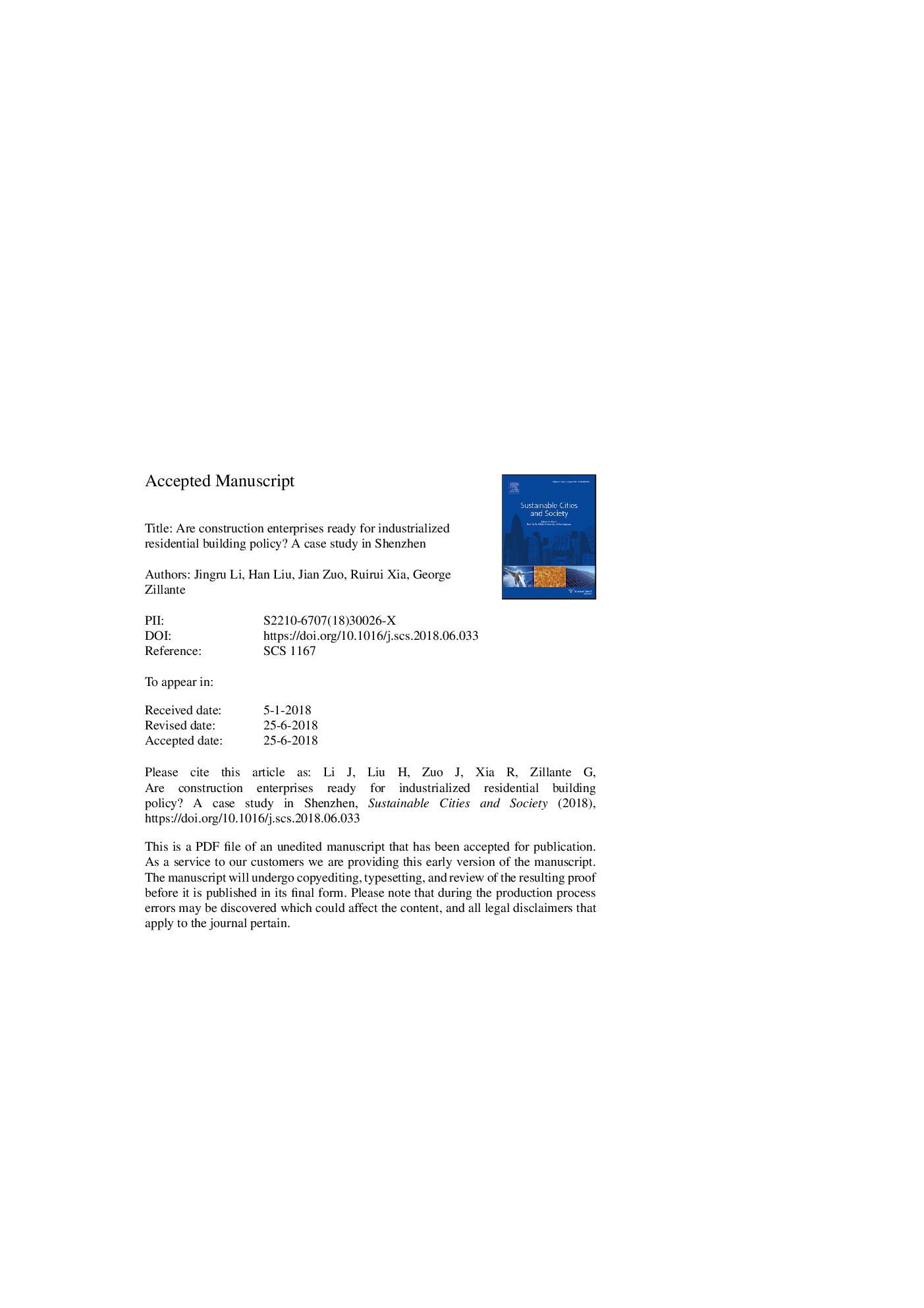| Article ID | Journal | Published Year | Pages | File Type |
|---|---|---|---|---|
| 6775356 | Sustainable Cities and Society | 2018 | 20 Pages |
Abstract
Limited studies have focused on the enterprises' perception on industrial policies, although their perception may impact heavily on the expected achievement of the policy objects. Aiming to effectively promote industrialized residential building (IRB) policy, this study investigated how the construction enterprises perceive the IRB policy. Based on extensive review of previous studies, the policy perceptions were constructed using six variables, i.e. understanding, perceived risk, perceived benefit, perceived effectiveness, perceived operability and perceived equity. Similarly, the influence of the enterprise characteristics was taken into consideration. The impacts of these variables on construction enterprises' willingness to accept the IRB policy were explored by means of the ordered logistic regression analysis. The results indicated that the perceived effectiveness, benefit and operability of construction enterprise towards IRB policy had significant effect on their willingness to accept the IRB policy. Meanwhile, certification class is the only enterprise characteristic which has a significant influence. These research conclusions provide a useful reference to improve IRB policy in the future.
Keywords
Related Topics
Physical Sciences and Engineering
Energy
Renewable Energy, Sustainability and the Environment
Authors
Jingru Li, Han Liu, Jian Zuo, Ruirui Xia, George Zillante,
